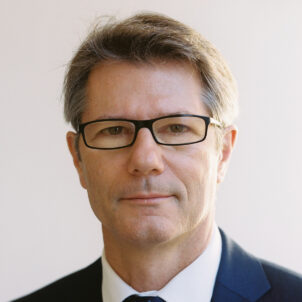Introduction by the Secretary-General

If you are now reading these few words, it means that you have already heard of The Hague Academy of International Law, which pleases me greatly. It confirms that the Academy’s prestige and renown are recognized in the academic and diplomatic spheres, worldwide. In fact, your interest in the Academy is shared by the General Assembly of the United Nations, which regularly underlines with satisfaction the contribution that the Academy makes to the teaching, study, dissemination and wider appreciation of international law
(A/RES/76/110, paras. 24 and 25 of 9 December 2021).
It is therefore my great pleasure to welcome you on the Academy’s website, which is conceived and regularly updated to provide you with all necessary information you wish to obtain about our institution, to get better acquainted with it and to gain detailed knowledge of what it has to offer. I believe you will probably find many good reasons to choose to participate in its programmes, of which I will give you a brief overview in the next few paragraphs.
Without delving too deeply into its history – it is already covered elsewhere – let me just remind you that The Hague Academy of International Law was officially inaugurated almost a century ago, on 14 July 1923, in the Netherlands, in the Main Courtroom of The Permanent Court of International Justice, at the Peace Palace, in the presence, among others, of the President and Members of the Court as well as the representatives of the League of Nations. Charles Lyon-Caen, then President of the Curatorium, mentioned in his inaugural speech, his wish for the Academy to become a “high-level teaching institution, which would attract a multitude of students from all over the world”. This phrase of powerful brevity has proven to be the exact reflection of what the Academy was intended to be, from its origin up until today.
Indeed, the Academy is undoubtedly a “high-level teaching institution” where courses, seminars, conferences, visits of the Peace Palace, embassies, international institutions, and exchanges on a wide variety of topics, continue unabated throughout the entire year. Courses are given by “the most competent men and women from all different States of the World”, quoting Charles Lyon-Caen’s words once more, namely among the world’s most eminent and renowned professors of international law, judges and specialists.
“A multitude of students from all over the world” come to the Academy and this makes it a truly unique institution. Almost 700 attendees of approximately 100 different nationalities follow the famous “Summer Courses on Public and Private International Law” every year in July and August, in the magnificent Auditorium, where simultaneous translation in English and French is provided. Later on in the Summer, the Centre for Studies and Research opens its doors to around 20 young research students from all walks of life, who, under the direction of two experts, undertake advanced research work that is crowned by a publication, each year on a different legal topic. This is followed, generally in Autumn, by the now famous specialized Advanced Course, which recently has dealt with certain aspects of international criminal law, and finally, the generous External Programme, when the Academy exports itself abroad for a week of courses on a chosen theme. In January 2019, an event of major significance took place, namely the inauguration of the Academy’s first session of Winter Courses, conceived along the same lines as the Summer Courses, for a duration of three weeks. It marked an important and memorable moment in the history of the Academy who has since then made its courses accessible to an even larger number of attendees.
This summary briefly accounts for the main aspects of the Academy’s activities, which I would recommend to you. Please allow me to say that those of you who will choose to participate in our programmes will have the opportunity to discover a unique environment, the City of The Hague, known as the world’s capital of international law. The city is indeed the seat of new international courts and tribunals that have been added to their forerunners, the Permanent Court of Arbitration and the Permanent Court of International Justice, which was later succeeded by the International Court of Justice. Numerous important international organisations, institutes, foundations and associations, operating in the various areas of international law, have been created in The Hague in recent years.
Finally, taking part in our programmes will be the occasion for you to discover or to return to the Netherlands, a country where the art of living has become a system, where peace and democracy are cardinal virtues, and where the architecture of the buildings and the wealth of the museums have extended to this day the “Golden Age” of a nation whose traditions of hospitality and tolerance will be obvious for you.